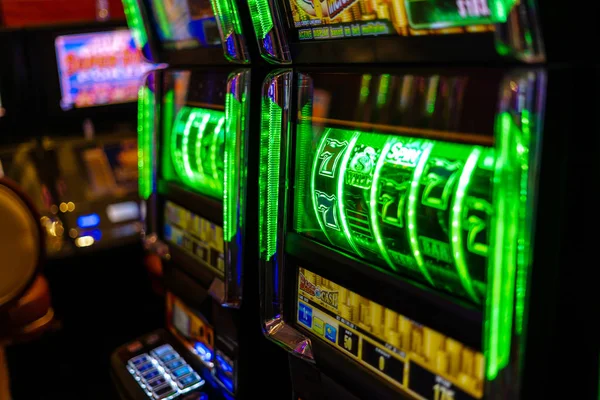Gambling in Finland has undergone a transformative journey, evolving from ancient rudimentary games of chance to the modern, sophisticated digital gambling platforms of today. This evolution mirrors the broader societal and technological advancements, reflecting changes in attitudes, legislation, and innovation. As we delve into the history and development of gambling in this Nordic country, we uncover a fascinating tale of cultural shifts, governmental intervention, and forward-looking adaptation in the face of the digital age. This article explores the various phases of gambling’s evolution in Finland, from its earliest instances to the current landscape dominated by state-controlled entities and the burgeoning realm of online gambling.
From Ancient Times to Modern Thrills: A Prelude
The roots of gambling in Finland can be traced back to ancient times when simple games of chance were a part of communal activities. These early forms of gambling were primarily social in nature, often associated with religious rituals or festive celebrations. As Finnish society evolved, so did the complexity and variety of its gambling activities, although for centuries these remained informal and largely unregulated. It wasn’t until the 17th century that documented evidence of gambling in Finland emerges, pointing to the existence of lotteries intended to fund public projects or charitable causes. The 19th century saw the introduction of more organized forms of betting, including horse racing, which quickly gained popularity. Despite its growing appeal, gambling during this period was still viewed with a degree of suspicion and moral apprehension, setting the stage for future regulatory efforts.
The Birth of National Lotteries in the 20th Century

The 20th century marked a significant turning point in the history of Finnish gambling, with the establishment of national lotteries. The Finnish government recognized the potential of lotteries to generate revenue for public good, leading to the formation of the first official lottery in 1940. This move was revolutionary, as it signaled a shift towards state-sanctioned gambling, ensuring that the proceeds could be directed towards societal benefits. Over the years, national lotteries grew in popularity, becoming a staple of Finnish recreational activity and an important contributor to the funding of sports, arts, and social programs. The success of the lottery system laid the groundwork for the expansion of more state-controlled gambling initiatives, emphasizing the unique relationship between gambling and public welfare in Finland.
Slot Machines Take Finland by Storm in the 1980s
The 1980s heralded the arrival of slot machines in Finland, marking a new era in the country’s gambling history. Initially introduced in restaurants and bars, these slot machines quickly became a favorite pastime for many Finns. Their widespread popularity prompted the government to regulate and eventually monopolize their operation, ensuring that, like the lotteries, the profits generated from these machines were funneled back into community services and projects. This period also saw the emergence of RAY (Raha-automaattiyhdistys), the Slot Machine Association founded in 1938, taking a more prominent role in overseeing the operation and distribution of slot machines across the country, reinforcing the state’s involvement in the gambling sector.
The Digital Revolution: Online Gambling Emerges
The advent of the internet and digital technology in the late 20th and early 21st centuries brought about the next major phase in the evolution of gambling in Finland: online gambling. Finnish gamblers quickly embraced the convenience and variety offered by online platforms, leading to a significant expansion of the gambling market. Recognizing the potential challenges and opportunities presented by online gambling, the Finnish government moved to consolidate its control over the sector. In 2017, Veikkaus was formed through the merger of the three previously state-owned gambling companies, creating a single entity responsible for the operation of all state-sanctioned gambling activities, including online betting and gaming. This consolidation aimed to streamline regulation, promote responsible gambling, and ensure that profits continued to support public services.
Government Oversight and the Veikkaus Monopoly

The Finnish government’s approach to gambling is characterized by a unique model of monopoly and oversight. Veikkaus, the state-owned company, is granted exclusive rights to operate gambling services in Finland, with its operations closely regulated to ensure ethical practices and the promotion of responsible gambling. This model reflects Finland’s commitment to prioritizing public health and social welfare over commercial profits from gambling. Critics argue that this monopoly restricts competition and consumer choice, while supporters claim it allows for more effective regulation, problem gambling prevention, and the channeling of gambling proceeds towards societal benefits. The debate continues, but the model remains a distinctive feature of the Finnish gambling landscape.
Looking Ahead: The Future of Gambling in Finland
As we look to the future, the gambling landscape in Finland appears poised for further evolution, particularly in the realm of online gambling and international competition. The rise of digital technology and global internet access presents challenges to the traditional state monopoly model, with more Finns seeking out international online gambling options. In response, Finnish authorities may need to adapt their regulatory frameworks to better address these changes, potentially revising the monopoly model to ensure it remains effective in a rapidly changing digital environment. Additionally, there is an ongoing focus on enhancing responsible gambling measures and utilizing technological advancements to prevent problem gambling. The future of gambling in Finland will likely be marked by a balance between maintaining the social benefits of the state-controlled model and embracing innovation and change in the digital age.
The evolution of gambling in Finland from ancient pastimes to modern digital platforms demonstrates a remarkable journey shaped by societal values, technological advancements, and governmental intervention. As Finland continues to navigate the complex landscape of modern gambling, it holds onto a model that emphasizes societal welfare, responsible gaming, and the importance of adapting to technological change. The future of gambling in Finland, while uncertain, promises to be as intriguing and dynamic as its past, reflecting broader trends in innovation, regulation, and social responsibility.
